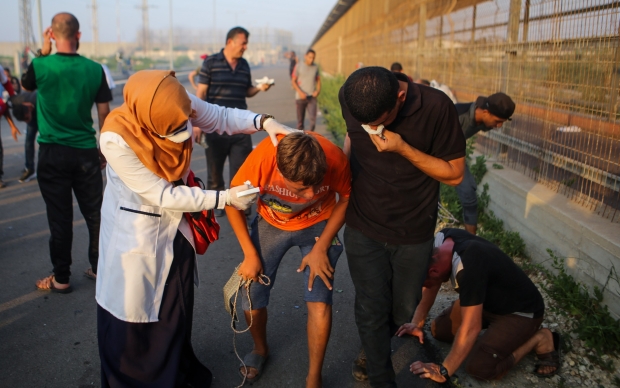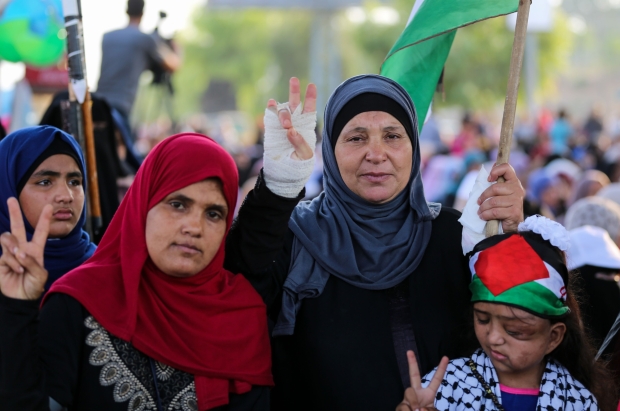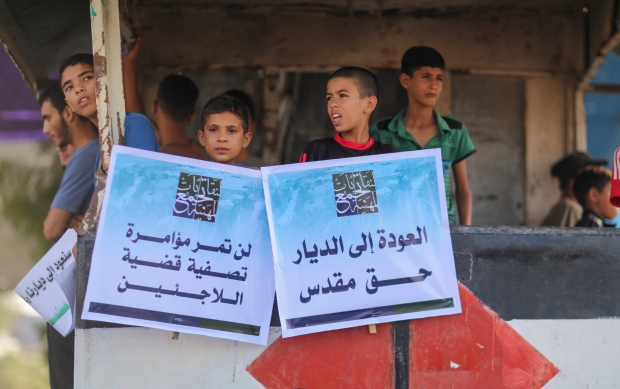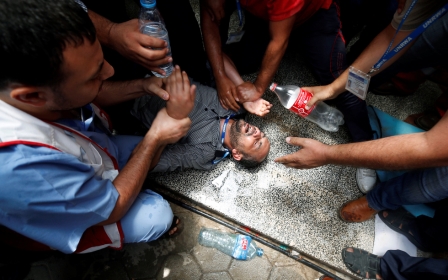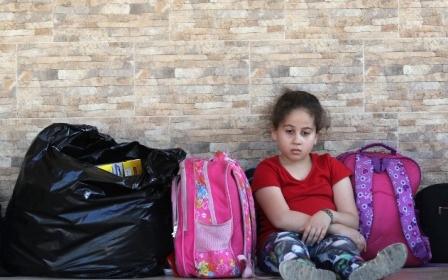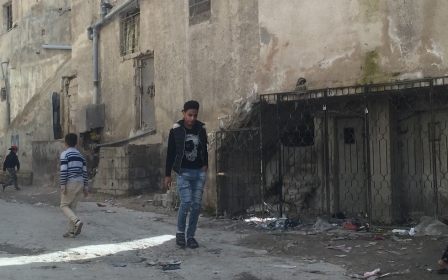'Trump wants to starve us': Palestinians in Gaza protest UNRWA cuts
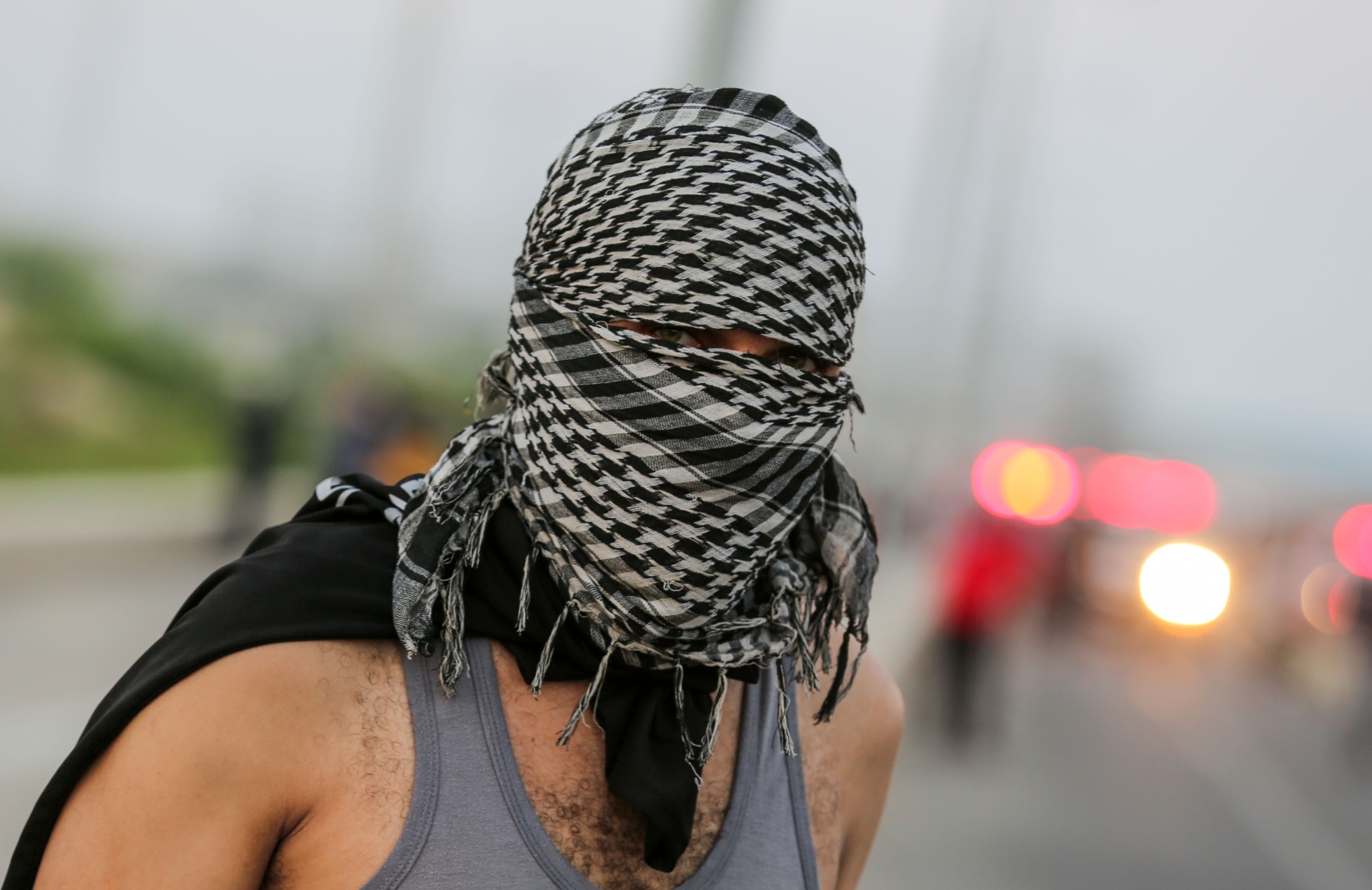
BEIT HANOUN, Gaza - Hundreds of Palestinian demonstrators gathered near the northeastern Gaza town of Beit Hanoun on Tuesday after setting up a protest camp there, only to be targeted by Israeli forces.
The camp, under the banner “Together for the protection of refugees’ rights”, was erected earlier in the day near Erez, the only crossing for people between Israel and Gaza, to denounce the 11-year blockade of the coastal Palestinian enclave and call for the right of return for Palestinian refugees whose families were displaced during the establishment of the state of Israel.
If they want to close UNRWA, then let me go back to my land
- Sahar al-Muqid, demonstrator
A Middle East Eye correspondent on the scene reported that Israeli forces shot live bullets and tear gas at the protesters. The Gaza health ministry reported that at least 25 Palestinians were injured.
Tuesday’s demonstration - the latest to be organised by the Great March of Return - comes days after US President Donald Trump, a staunch Israel supporter, cut all American funding to UNRWA, the United Nations agency for Palestinian refugees.
“We are here to make clear that we are refugees and to tell Trump that we are the children of the Palestinian people who lived through the Nakba, and we are not giving up on our historical lands,” Iyad Kloub, one of the organisers of Tuesday’s demonstration, told MEE. “We will remain until we receive all our rights acknowledged by the international community, including Jerusalem as our capital.”
“My ancestral land is only a few meters away,” he added, gesturing beyond the wall separating Gaza from Israel.
With 1.3 million registered refugees making a majority of Gaza’s 2 million inhabitants, the move is set to have a dire impact on the already impoverished territory - where US cuts earlier this year prompted one UNRWA worker to try to set himself on fire.
“Trump wants to starve us,” Inshirah Abu Aamsha, a resident of Beit Hanoun, told Middle East Eye. “Here in Gaza, our situation is different than in other areas like Jordan or Lebanon, because we also live under siege.
“It’s making it impossible for people to live,” she added.
“Instead of ending the siege on Gaza, they are besieging UNRWA,” Sahar al-Muqid, a demonstrator living in Jabalia refugee camp, told MEE. “They want us to submit, but we will continue protesting and we will continue exerting pressure.
“If they want to close UNRWA, then let me go back to my land,” she added.
Since late March, Palestinians have gathered near the fence separating Gaza from Israel as part of the Great March of Return, in an unprecedented popular movement since Israel first began implementing its siege on Gaza in 2007.
Israeli forces have killed at least 171 Palestinians in Gaza since the beginning of the march. One Israeli soldier was killed during the same time frame.
While Hamas - the de facto ruling party in Gaza - and Israel have reportedly been holding talks in the past several weeks over an agreement that could lead to an easing of the siege, demonstrators have continued to gather every Friday.
Earlier on Tuesday, Israeli media reported that boats belonging to the Freedom Flotilla that had been seized by Israeli forces in July while trying to breach the naval blockade of Gaza, would be auctioned off.
Mohammed al-Hajjar contributed reporting from Beit Hanoun.
New MEE newsletter: Jerusalem Dispatch
Sign up to get the latest insights and analysis on Israel-Palestine, alongside Turkey Unpacked and other MEE newsletters
Middle East Eye delivers independent and unrivalled coverage and analysis of the Middle East, North Africa and beyond. To learn more about republishing this content and the associated fees, please fill out this form. More about MEE can be found here.


